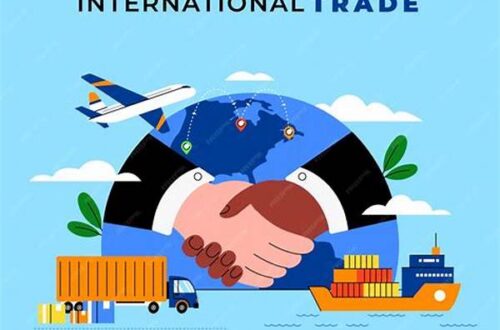Historical Context of Superpower Influence in Regional Conflicts
The significance of superpower influence in regional conflicts is underscored by its historical impact, shaping global politics and perspectives. Superpowers, having vast resources and military strength, increasingly engage in regional arenas, exerting pressure to steer outcomes favorable to their geopolitical objectives. The Cold War epitomized this, where the United States and the Soviet Union vied for influence across various regions. Through a series of proxy wars and strategic alliances, these superpowers left a lasting imprint on regions such as Southeast Asia, the Middle East, and Latin America.
In the contemporary setting, the dynamics of superpower influence in regional conflicts have evolved, yet the underlying motivations remain constant. Current global powers like the United States, China, and Russia continue to engage in geopolitical maneuvers to protect and extend their spheres of influence, albeit with more sophisticated and multilateral approaches. The intricate web of alliances, economic dependencies, and technological advancements have added layers of complexity to this influence. The superpowers are more inclined to leverage diplomatic, economic, and soft power tactics alongside traditional military means.
The ramifications of superpower influence in regional conflicts are profound, often determining the trajectory of regional stability and international relations. A superpower’s backing can tip the scales of a regional dispute, leading to either escalation or resolution. The involved nations find themselves either beneficiaries of protection and support or arenas of strategic contest, all of which have a significant impact on their domestic and foreign policies. The consequences of such influences extend beyond immediate geopolitical gains, potentially leading to long-term socio-economic and cultural transformations within the impacted regions.
Mechanisms of Superpower Influence in Regional Conflicts
Superpower influence in regional conflicts often manifests through direct military interventions, which can shift power balances and pressure resolutions.
Economic aid and sanctions serve as tools for superpowers to sway regional governments, guiding political alignments that cater to their interests.
Diplomatic efforts, including negotiations and alliances, are crucial for exerting superpower influence in regional conflicts without direct confrontation.
Superpowers frequently deploy media and information campaigns to shape narratives and public opinion within conflict zones, enhancing their influence.
The deployment of advanced technology and intelligence resources allows superpowers to monitor and potentially manipulate regional conflicts to their advantage.
Transformative Impact of Superpower Influence in Regional Conflicts
The transformative impact of superpower influence in regional conflicts is undeniable, reshaping political landscapes and altering global power dynamics. By leveraging their economic, military, and diplomatic prowess, superpowers can dictate the tempo and outcome of regional disputes. This often results in significant shifts in political alliances and socio-economic structures, with the affected regions experiencing both opportunities and challenges. The superpowers’ ability to intervene decisively often changes the course of conflicts, thereby molding new geopolitical realities.
Furthermore, superpower influence in regional conflicts often leads to the establishment of new political regimes and the realignment of interests among regional partners. This realignment might either consolidate stability or usher in new phases of unrest, depending on the superpower’s objectives and strategies. Historical precedents indicate that these influences, while aimed at fostering stability and peace, may inadvertently sow discord and unpredictability, raising ethical and strategic considerations. Ultimately, the transformation driven by superpower interventions highlights the complexity and contentious nature of global politics.
Global Ramifications of Superpower Influence in Regional Conflicts
1. Regional conflicts influenced by superpowers can escalate into larger confrontations, affecting global peace.
2. The economic fallout from superpower interventions often reverberates beyond targeted regions, impacting global markets.
3. Superpower influence in regional conflicts often triggers arms races, increasing global nuclear and conventional arms stockpiles.
4. Diplomatic tensions between rival superpowers may arise from their interventions, complicating international relations.
5. Superpowers, when intervening, often shape international norms and responses to conflict, influencing global policy approaches.
6. Superpower influence molds the socio-political fabric of the affected regions, often leading to migration and humanitarian crises.
7. The strategic positioning of military assets by superpowers in conflict areas can lead to long-term shifts in global military balances.
8. Regional conflicts, under superpower influence, become test beds for new military and technological innovations.
9. The cultural impact of superpower involvement in regional conflicts often leads to significant social changes within the affected regions.
10. By influencing regional conflicts, superpowers might inadvertently empower extremist factions, adding layers of complexity to the conflict.
Strategic Goals of Superpowers in Regional Conflicts
Superpower influence in regional conflicts is often driven by a set of strategic objectives aimed at expanding geopolitical influence and securing national interests. These objectives may vary depending on the region and the superpower’s broader goals, yet common themes include securing energy resources, ensuring favorable trade routes, and maintaining or establishing regional dominance. The pursuit of such objectives often prompts a recalibration of alliances and partnerships, utilizing both hard power, such as military interventions, and soft power, including diplomatic engagements.
The interplay of strategic goals among competing superpowers can lead to a delicate balance of power, where regional conflicts serve as arenas for proxy confrontations. Superpowers, through their engagements, often seek to contain rivals and prevent opposing ideologies from gaining footholds in strategic regions. This not only affects the immediate dynamics of the conflict but also shapes long-term alliances and geopolitical trends. The subtlety with which superpowers pursue these goals reflects a broader understanding of global politics, where direct confrontation is often substituted with strategic maneuvering and calculated interventions.
Socio-economic Consequences of Superpower Influence in Regional Conflicts
Superpower influence in regional conflicts invariably precipitates notable socio-economic consequences, spanning economic disruptions, societal transformations, and humanitarian impacts. The introduction of foreign aid and investments by superpowers can catalyze economic revitalization in some areas, yet it frequently comes tied with political strings and expectations of alignment with the superpower’s policies. The imposition of sanctions, conversely, can cripple economic development, stoking unemployment, inflation, and public discontent.
Moreover, societal implications often arise as a result of superpower involvement, where cultural exchanges, migration, and refugee crises alter social fabric. Regions embroiled in conflicts typically experience educational, health, and infrastructure systems stress, exacerbating existing challenges and creating new areas of concern. As superpowers navigate these conflicts, the socio-economic landscape is reshaped, often unpredictably, necessitating adaptive strategies by local and regional actors to mitigate adverse consequences while capitalizing on potential opportunities for growth and development amidst turbulent conditions.
Conclusion of Superpower Influence in Regional Conflicts
In summary, superpower influence in regional conflicts remains a significant determinant of international relations and political stability. The interventions by global powers, driven by strategic interests, have profound implications for regional dynamics and often dictate the outcomes of these conflicts. As such, the world continues to witness the evolving nature of superpower engagements that shape political and economic landscapes worldwide.
While superpower involvement aims to establish stability and safeguard interests, it simultaneously introduces complexities that beg strategic and ethical evaluation. Navigating the multifaceted reality of superpower influence in regional conflicts necessitates diplomacy, foresight, and prudence from all parties involved, ensuring that peace and stability are achieved in concert with respect for sovereignty and self-determination of the affected regions. The legacy of superpower involvement will thus continue to evolve, reflecting both historical lessons and contemporary geopolitical shifts.





